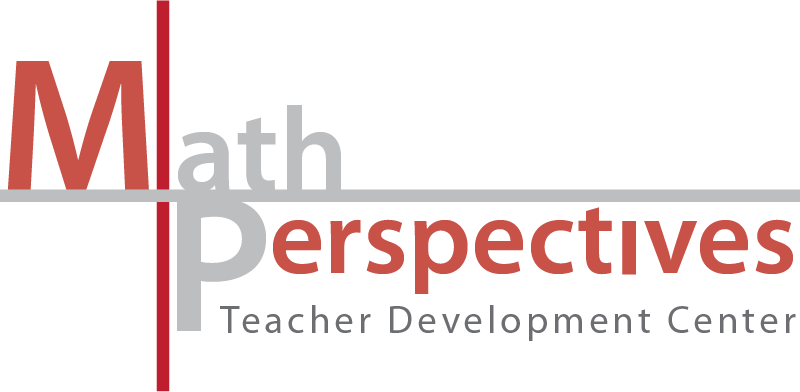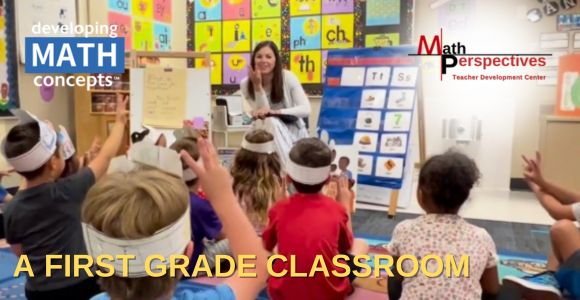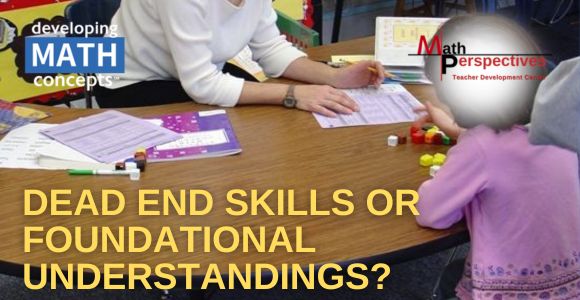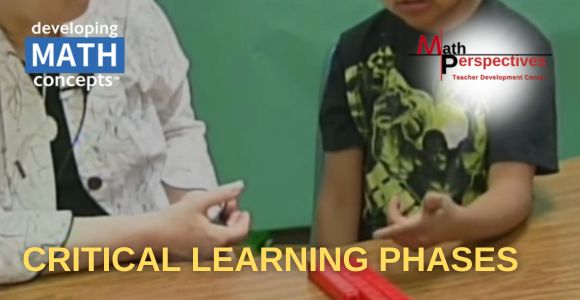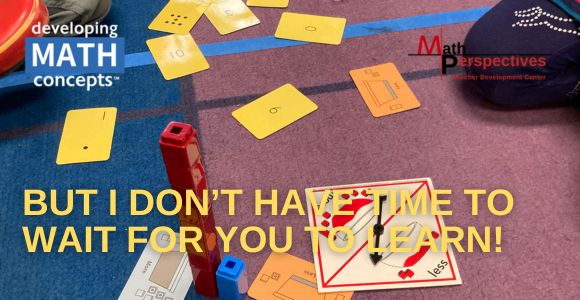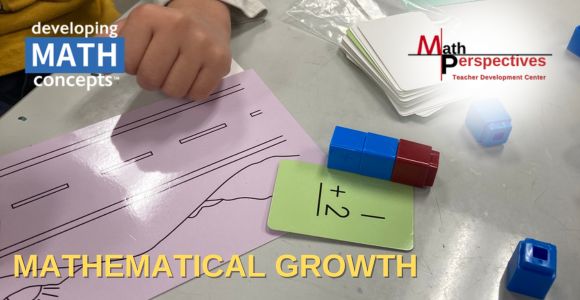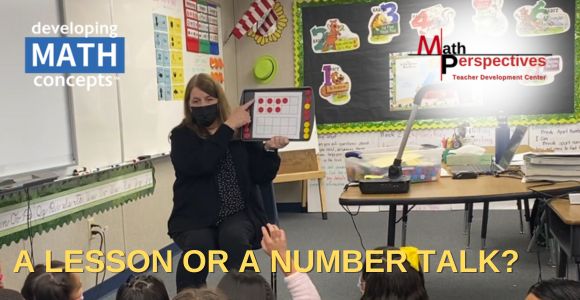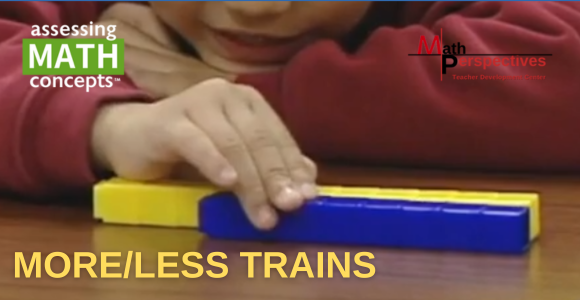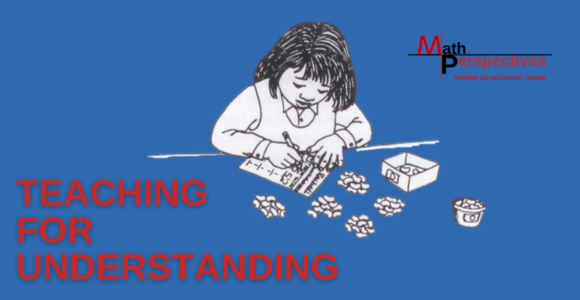What is an Efficient Strategy?
The following is a question from a reader and Kathy Richardson answering their question about efficient strategies in the Counting Objects assessment in Assessing Math Concepts. If you would like to submit a question to Kathy please email info@mathperspectives.com.
Q: What are considered “efficient” strategies that lead to a correct solution as opposed to a strategy that leads to a correct solution? This is for kindergarten. For students solving an addition or subtraction problem. Thank you!
A: I think the term “efficient” is defined differently based on the situation. I think of efficient as the strategy with the fewest steps. So when adding and subtracting, the least efficient strategy would be counting all the objects. More efficient strategies would be those where the child is using what they know to figure out what they don’t know.
For example, a child might know he has 4 in a pile and be able to start counting with 4 without going back to counting from 1.
Another situation might be when a child sees a relationship. An example of this is a child who just solved 2 + 4 sees that 4 + 2 would result in the same answer. It is also efficient if a child just knows the answer without needing to figure it out. Many kindergarten children know 2 + 2 is 4 for example.
However, I do not consider strategies that lack meaning for the child to be “efficient.” That is why I think efficiency depends on the situation. What is efficient for one child is not efficient for another.
The most efficient way for most kindergarten children to arrive at an answer to an addition or subtraction problem is likely to be counting all. They can become more efficient as counting becomes easier for them so they don’t get mixed up when counting or need to recount to make sure they are right. Some kindergarten children will realize that they don’t have to count the 4 again when they already know they have 4; but other children will not really trust that they can get the right answer unless they start counting from 1.
I hope these thoughts are helpful to you. Let me know if you have any questions about my definition or if any additional questions come up. ~Kathy
